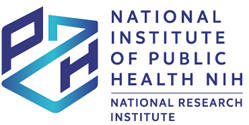RESEARCH PAPER
Assessment of knowledge and nutritional status of students before and after nutritional education
1
Department of Human Nutrition, Faculty of Biotechnology and Food Science,
Wroclaw University of Environmental and Life Sciences, Wroclaw, Poland
2
Faculty of Health Science and Physical Education, University of Applied Science in Nysa, Nysa, Poland
3
Department of Fruit, Vegetable and Plant Nutraceutical Technology, Faculty of Biotechnology
and Food Science, Wroclaw University of Environmental and Life Sciences, Wroclaw, Poland
4
Faculty of Medicine, Medical University of Wroclaw, Wroclaw, Poland
5
Human Nutrition Student Science Club, Faculty of Biotechnology and Food Science,
Wroclaw University of Environmental and Life Sciences, Wroclaw, Poland
Online publication date: 2024-07-01
Publication date: 2024-08-14
Rocz Panstw Zakl Hig 2024;75(2):169-173
KEYWORDS
ABSTRACT
Introduction: There are many educational and health programs implemented on a smaller or larger scale in Poland.
Many of them address the problem of overweight and obesity in different age groups. Each such activity is considered
valuable and important, since the problem of excessive body fat is growing and, in addition, poses a health risk due to the
development of other diseases, including diabetes and hypertension. The aim of the study was to test the effectiveness of
nutrition education implemented over a 7-week period and to assess the nutritional status of 32 students aged 20-21 from
Wroclaw. Material and Methods: The study group of students participated in a Human Nutrition course that included 30 hours of lectures
and 30 hours of exercises. In the study group, the level of knowledge was assessed twice (before and after education)
using a questionnaire with 13 closed questions, and body composition analysis was performed twice (before and after
education) using an InBody270 analyser. Results: The study group showed a statistically significant increase in the number of correct answers on the nutrition
knowledge questionnaire after the nutrition education (average 9.7 points vs. 11.4 points; p<0.05). No statistically significant
differences were noted in the studied anthropometric parameters performed before and after nutrition education. Conclusions: The knowledge gained during nutrition education allowed the surveyed students to give more correct
answers in the questionnaire after the Human Nutrition course. The nutritional status of the surveyed students did not
change statistically significantly, but two students achieved a weight reduction of 1.5-2 kg during the study period.
Share
RELATED ARTICLE
We process personal data collected when visiting the website. The function of obtaining information about users and their behavior is carried out by voluntarily entered information in forms and saving cookies in end devices. Data, including cookies, are used to provide services, improve the user experience and to analyze the traffic in accordance with the Privacy policy. Data are also collected and processed by Google Analytics tool (more).
You can change cookies settings in your browser. Restricted use of cookies in the browser configuration may affect some functionalities of the website.
You can change cookies settings in your browser. Restricted use of cookies in the browser configuration may affect some functionalities of the website.



